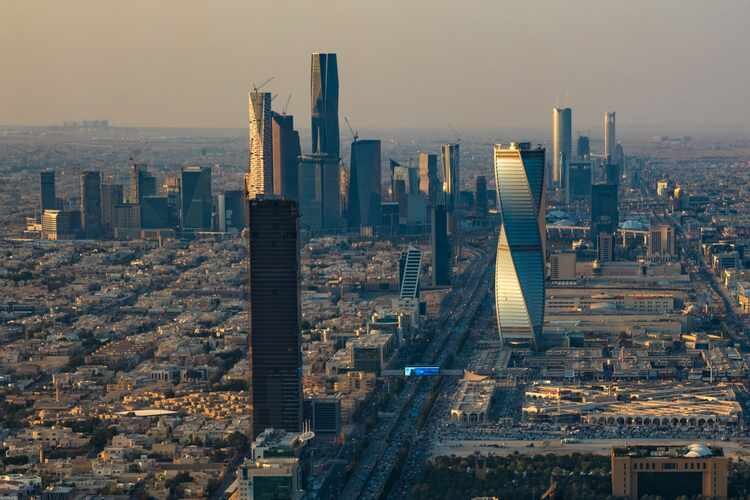Saudi aggressive foreign policy backfired

TEHRAN – With the Saudi capital city of Riyadh coming under attack in broad daylight, the Saudi government seems to be unable to protect its capital against increasing attacks.
A “loud” explosion was heard in Saudi Arabia’s capital Riyadh on Tuesday in what appeared to be a missile or drone attack on the oil-rich country for the second time in a week. As of this writing, Saudi authorities have not commented on the incident, but Saudi-owned Al Arabia TV said several witnesses reported hearing two loud bangs and seeing a small plume of smoke above the capital just before 1 P.M. local time (10 A.M. GMT).
Social media users in Saudi Arabia also shared videos purportedly showing Saudi Arabia’s air defense systems were activated to intercept an unidentified air target – most probably a combat drone - over Riyadh.
Unlike the earlier attack this week, this time there were no claims of responsibility whatsoever. According to social media reports, the Tuesday attack targeted the Riyadh airport. Flight tracking websites also showed that there were no planes flying over Riyadh’s airport during the time of the attack.
This is the second attack on Riyadh in four days. Earlier this week, Saudi Arabia’s air defense systems were activated to intercept an air target. On Saturday, Saudi Arabia had announced that it had intercepted and destroyed an “enemy air target” launched towards Riyadh.
A new Iraqi group called “al-Wiyat al-Wa’ad al-Haq” (Brigades of Righteous Promise) claimed responsibility for the attack.
“After the (Persian) Gulf’s Arabs persisted in their crimes against the peoples of the region and continued to support ISIS criminal gangs and takfiri groups that have the blood of innocent people on their hands, here are the people of the Arabian Peninsula who fulfill their promise by sending drones of fear to the kingdom of the House of Saud and crushing their strongholds in Al Yamama Palace and other targets in Riyadh,” the group said in a statement, adding that it is beginning to take the battle deep into the Saudi “Sheikhdom” in revenge for “the blood of the martyrs.”
The group also warned that it would strike Dubai if the crown princes of Saudi Arabia and Abu Dhabi continued to commit crimes.
The Tuesday attack was the latest sign that Saudi Arabia’s aggressive policies in the region, especially against its immediate neighbors, are beginning to backfire. Saudi Arabia started a disastrous war against Yemen in 2015 that resulted in creating the worst humanitarian crisis in the world. It still refuses to stop the war even though it continues to exacerbate the suffering of the Yemeni people.
Riyadh along with its regional allies also imposed a blockade on Qatar in a futile effort to drive a wedge between Qatar and some regional countries such as Iran and Turkey. All this while Iran has called - and continues to call – on Saudi Arabia to resolve differences through dialogue. But Saudi Arabia rejected all Iran’s calls while accusing Iran of interfering in the internal affairs of Arab states.
All Saudi claims aside, Riyadh itself has been accused of interfering in some Arab states such as Iraq. Iraqis have pointed the finger at Saudi Arabia after two suicide bomb attacks killed dozens of Iraqi citizens in Baghdad last week.
Saudi Arabia does not face any difficulty revising its aggressive foreign policy. In fact, there are growing calls in the region demanding that Saudi Arabia reconsider its policies. Iran said that Saudi Arabia has begun realizing that its aggressive foreign policy has ended in failure and that it seems to be revising some aspects of its foreign policy accordingly. Iran said it would welcome Saudi Arabia's decision to change its approach.
“It looks like the Saudi officials have begun reforming some of their policies concerning the interaction with some of the Persian Gulf’s littoral countries, having understood that war and bloodshed do not help them out anymore, and also having despaired of their former allies,” Iran’s Foreign Ministry spokesman Saeed Khatibzadeh said in remarks to ISNA that the news agency published on Sunday, according to Press TV.
The spokesman pointed out that if Riyadh seriously puts policy reforms on its agenda and concludes that the solution to problems lies in “regional cooperation,” Iran will be the first country to welcome these reforms.
The spokesman pointed out that if Riyadh seriously puts policy reforms on its agenda and concludes that the solution to problems lies in “regional cooperation,” Iran will be the first country to welcome these reforms.
Leave a Comment